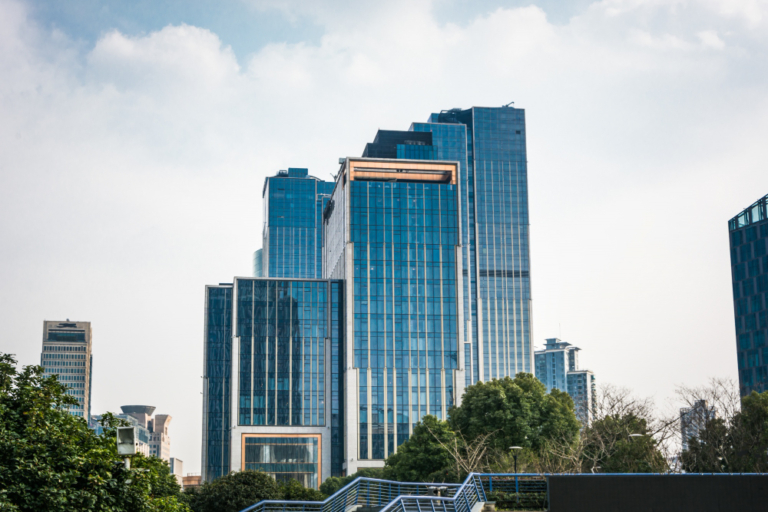Commercial real estate in Thailand presents a range of profitable opportunities, from hotels and resorts to office buildings and retail spaces. Whether you’re a local or international investor, understanding the financing options available is essential to leveraging these investments to their fullest. Commercial real estate financing in Thailand can help secure funding for various property types, from acquiring land to developing mixed-use spaces, making it crucial to navigate financing sources and strategies effectively.
This article delves into the various commercial financing options in Thailand, outlining loan types, eligibility, trends, and practical steps for investors. We’ll also cover common challenges, emerging trends, and tips to help investors make well-informed decisions.
Understanding Commercial Real Estate Financing in Thailand
Commercial real estate financing is a loan or funding solution designed specifically for properties used for business purposes, including offices, retail centers, warehouses, and hotels. For investors, this financing can enable expansion, renovation, or purchasing prime properties.
Why is this topic important? Thailand’s real estate market is evolving rapidly, with demand increasing in cities like Bangkok, Chiang Mai, and Phuket. Knowing the financing options in this market can help investors capitalize on new opportunities while managing risks.
Main Types of Commercial Real Estate Loans in Thailand
1. Traditional Bank Loans
Traditional bank loans are among the most common forms of financing for commercial properties in Thailand. These loans typically require substantial documentation and have stricter eligibility criteria.
Key Details:
- Requirements: Good credit history, financial statements, business plan
- Interest Rates: Generally competitive; fixed or variable options
- Pros: Lower interest rates, predictable terms
- Cons: Longer approval process, strict eligibility
- Best For: Established investors with solid financial backgrounds
Thai banks such as Bangkok Bank and Kasikorn Bank offer competitive commercial loans for qualified investors, making these institutions a reliable option.
2. Developer Financing
In Thailand, some real estate developers provide direct financing to investors, particularly for commercial projects in early development phases. This approach can reduce the need for upfront capital and is particularly helpful in areas with new or under-construction commercial spaces.
Key Details:
- Requirements: Often tied to specific projects or developers
- Interest Rates: May be higher than banks but offer flexibility
- Pros: Flexible repayment, project-specific financing
- Cons: Limited to certain developers, possibly higher costs
- Best For: Investors purchasing new developments or partnering with developers
3. Private Loans and Hard Money Loans
For investors who need quick access to capital, private lenders and hard money loans are alternatives. Private lenders offer more flexibility but generally charge higher interest rates, as they cater to investors looking for faster processing.
Key Details:
- Requirements: Typically less strict on credit history
- Interest Rates: Higher due to risk factors
- Pros: Fast approval, flexible terms
- Cons: High interest, shorter repayment periods
- Best For: Investors who require quick financing for short-term investments
4. Foreign Investor Loans
For foreign investors seeking commercial properties in Thailand, obtaining financing through local banks may be challenging. Many foreign investors opt for loans from international banks or foreign branches in Thailand that offer services tailored to non-residents.
Key Details:
- Requirements: Varies by country and institution
- Interest Rates: Often higher for foreign investors
- Pros: Accessible to international investors, structured for foreign ownership
- Cons: Higher interest rates, strict documentation
- Best For: Foreign investors purchasing commercial real estate in Thailand.
Trends in Commercial Real Estate Financing in Thailand
The commercial real estate market in Thailand is shaped by economic conditions, government policies, and foreign investment trends. Understanding these trends can help investors choose the right financing strategy.
- Growing Demand for Mixed-Use Developments
Many new projects are mixed-use, combining residential, retail, and commercial spaces. This trend attracts financing tailored for multi-functional properties, often through larger bank loans or developer partnerships. - Sustainable and Eco-Friendly Financing
Banks and developers are increasingly offering incentives or lower rates for environmentally sustainable buildings. This can be appealing to investors seeking long-term properties with lower operating costs. - Rising Foreign Investment Interest
Thailand’s popularity among foreign investors has led to new financing products aimed at non-residents, facilitating easier access to the Thai real estate market for international buyers.
The commercial real estate market in Thailand is shaped by economic conditions, government policies, and foreign investment trends. Understanding these trends can help investors choose the right financing strategy.
How to Choose the Right Financing Option
- Growing Demand for Mixed-Use Developments
Many new projects are mixed-use, combining residential, retail, and commercial spaces. This trend attracts financing tailored for multi-functional properties, often through larger bank loans or developer partnerships. - Sustainable and Eco-Friendly Financing
Banks and developers are increasingly offering incentives or lower rates for environmentally sustainable buildings. This can be appealing to investors seeking long-term properties with lower operating costs. - Rising Foreign Investment Interest
Thailand’s popularity among foreign investors has led to new financing products aimed at non-residents, facilitating easier access to the Thai real estate market for international buyers.
Example Case Studies
Case Study 1: Office Space in Bangkok
An investor planning to purchase an office building in Bangkok opted for a bank loan with Bangkok Bank. Given the stable long-term cash flow, they chose a traditional loan with a fixed rate to manage expenses predictably.
Case Study 2: Hotel Development in Phuket
A developer seeking to build a resort in Phuket secured a developer loan in partnership with a Thai development company. This enabled quick access to capital without needing extensive personal financial history, allowing them to break ground promptly.
Conclusion
Commercial real estate financing in Thailand offers multiple avenues, from bank loans to developer financing, catering to both local and international investors. Each financing option comes with its own requirements and benefits, making it essential to choose based on your investment goals, risk tolerance, and property type.
For additional guidance, consider reaching out to a financial advisor or exploring resources such as Horizon Homes for the latest information on financing options and real estate opportunities in Thailand.
FAQs: Commercial Real Estate Financing in Thailand
Yes, some banks and foreign branches offer loans to international investors, though requirements can be stricter than for local borrowers.
Rates vary but generally range between 5-7% for traditional loans, with higher rates for private loans or foreign borrowers.
Yes, smaller loans are available for small businesses, often through local banks or government initiatives.
Yes, refinancing is available, often used to secure better interest rates or additional capital for renovations or expansions.
LTV ratios typically range from 50-70%, though some developers or private lenders may offer more flexible terms.




